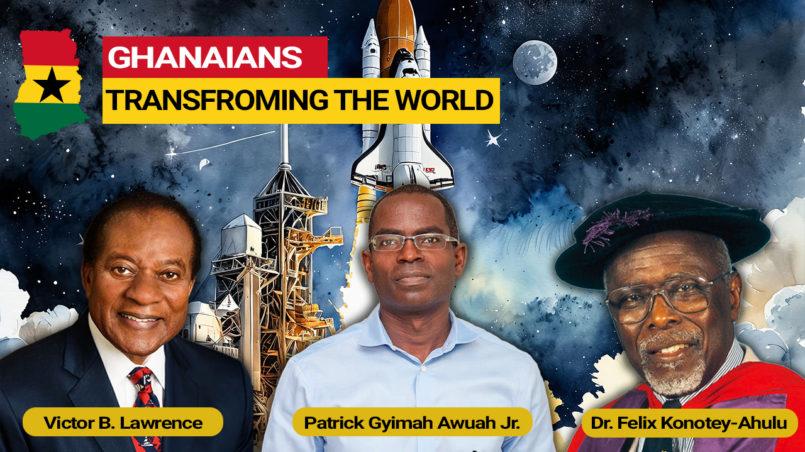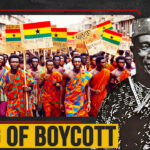Victor B. Lawrence
Over the past three decades, Victor B. Lawrence has left a major mark on the global telecommunications industry. Through his pioneering efforts, he has facilitated various advancements in broadband, High Definition Television technologies, and wireless data transfer.
Born on May 10, 1945, in Accra, Ghana, Lawrence attended Achimota School. He pursued his higher education at the University of London, and earned a Bachelor’s degree in electrical engineering in 1968, followed by an Master’s degree in 1969, and a Ph.D. degree in 1972, in the same field.
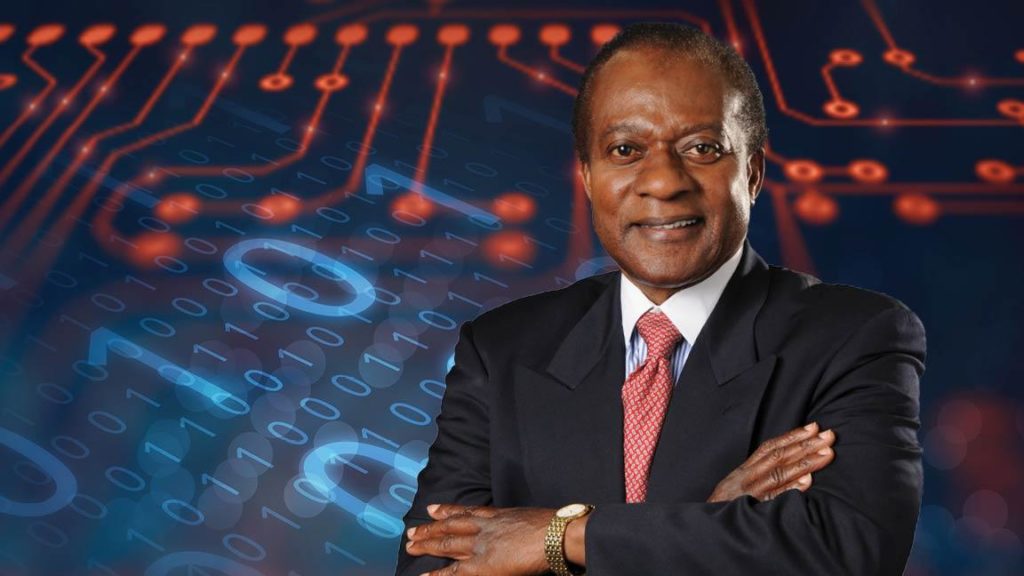
Throughout a significant portion of his professional career, Lawrence was affiliated with Bell Laboratories, where he applied his skills to enhance data transmission over telephone lines. He created methods to improve how signals travel through phone lines, which were very important for developing devices like modems, MiFi’s and other technologies that allow us to use the internet through telephone lines. As the lead engineer of AT&T’s full duplex modem, he pioneered advancements that boosted modem speeds from 2.4kbs to 56kbps, opening up new possibilities for the Internet beyond simple text-based functions.
Additionally, he innovated methods of packing more information into signals, paving the way for the introduction of digital video and radio. In sum, Lawrence is the architect of transforming the Internet into a global industry with far-reaching applications beyond its initial purpose.
Lawrence became the director of the Center for Intelligent Networked Systems and was appointed as the Charles Batchelor Chair Professor of Engineering and associate dean at the Stevens Institute of Technology in 2005. He has co-authored numerous books, including “Introduction to Digital Filters,” “Tutorials on Modem Communications,” “Intelligent Broadband Multimedia Networks,” “The Art of Scientific Innovation,” and others.
Lawrence holds more than twenty U.S. and international patents and has had more than forty-five papers in referenced journals and conference proceedings, covering the topics of digital signal processing and data communications.
Lawrence led a team that created a special technology to make high-quality television pictures called HDTV. The technology has been used by many different companies to create HDTV sets, including Sony, Panasonic, and Samsung. The same technology is also used in smartphones for video streaming, messaging, and communications. His work has had great impact on voice, data, radio, and video communications.
In 1993, Lawrence started a project to connect the United States and Africa using fiber optic cables. He led a team that created the engineering requirements for a cable called Africa One, which used advanced technology to send data over long distances stretching 17,000 kilometers underwater. The project was successful and created a network of fiber optic cables around Africa.
Lawrence has invented so many groundbreaking technologies in the field of telecommunications which time won’t permit us to cover in this video. He holds numerous patents and publications in the telecommunications field.
Lawrence was elected as a Fellow of the National Academy of Engineering, the Institute of Electrical and Electronics Engineers (IEEE), and Bell Laboratories. He has also received numerous awards, including the 2004 IEEE Award in International Communication, Black Engineer for Outstanding Technical Contributions in 1995, Emmy Award for the HDTV Grand Alliance Standard in 1997 and many more.
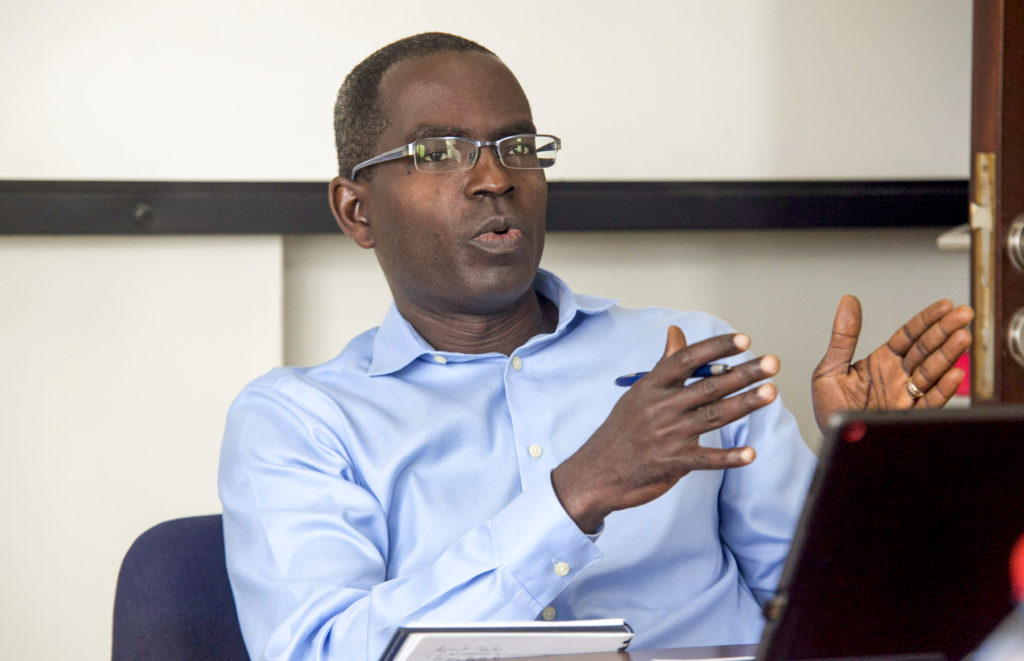
Patrick Gyimah Awuah Jr.
Patrick Gyimah Awuah Jr. a remarkable individual who left behind a successful career at Microsoft to pursue a noble goal in Ghana by educating and inspiring the next generation of African leaders.
Patrick Awuah Jr. is a Ghanaian engineer, educator, and entrepreneur. He is also the Founder and President of Ashesi University: a private, non-profit institution in Ghana.
Born in 1965, Awuah grew up in Accra and attended Achimota School. In 1985, he relocated to the United States and enrolled in Swarthmore College on a full scholarship. He graduated in 1989 with Bachelor’s degrees in Engineering and Economics and joined Microsoft Corporation where he worked as a software engineer and program manager for eight years. It was during his term at Microsoft that he met his future wife, Rebecca Awuah, who worked as a software testing engineer.
In 1997, Awuah left Microsoft with the goal of returning to Ghana to educate the next generation of African leaders. He said and I quote; People in positions were neither fixing the problem nor creating solutions. If young Africans are to take charge of creating a thriving Africa- rather than perpetuating corruption and inefficiency – they will have to develop new mindset, new capabilities.”
He enrolled at the Haas School of Business at the University of California, Berkeley, focusing his work on preparing a business plan for the creation of a new kind of University in Ghana which would later be called Ashesi meaning “beginning” in the Akan language.
In 1998, Patrick Awuah and fellow graduate students from Berkeley conducted a feasibility study in Ghana for the university. The following year, Awuah graduated with his MBA and returned to Ghana with his family, founding the Ashesi University Foundation.
The mission was to educate a new generation of ethical and innovative leaders in Africa equipping with the ability to think critically, care for others, and possess the bravery needed to transform the continent.
Ashesi has gained recognition as one of the leading higher institutions in Africa and has garnered numerous awards in recent years. It was acknowledged as one of the most highly regarded institutions in Ghana in 2012.
Patrick Awuah has been the recipient of numerous prestigious awards. He was bestowed with the Order of the Volta by Former President J.A. Kufuor, the Elise and Walter A. Haas International Award, an Elon Medal for Entrepreneurial Leadership, the McNulty Prize, and the MacArthur Fellowship. In addition, Fortune Magazine recognized him as one of the 50 most remarkable leaders across the world.
Observing individuals of African descent returning to their ancestral homeland to lend a hand in improving the lives of their fellow Africans is truly inspiring. It is a powerful symbol of the resilience and determination of the African people to build a better future for themselves and their communities.
I encourage all Africans, irrespective of where they reside, to come together and strive towards a shared objective of improving Africa. Our efforts should be directed toward building a continent that is prosperous, united, and free from external influences.
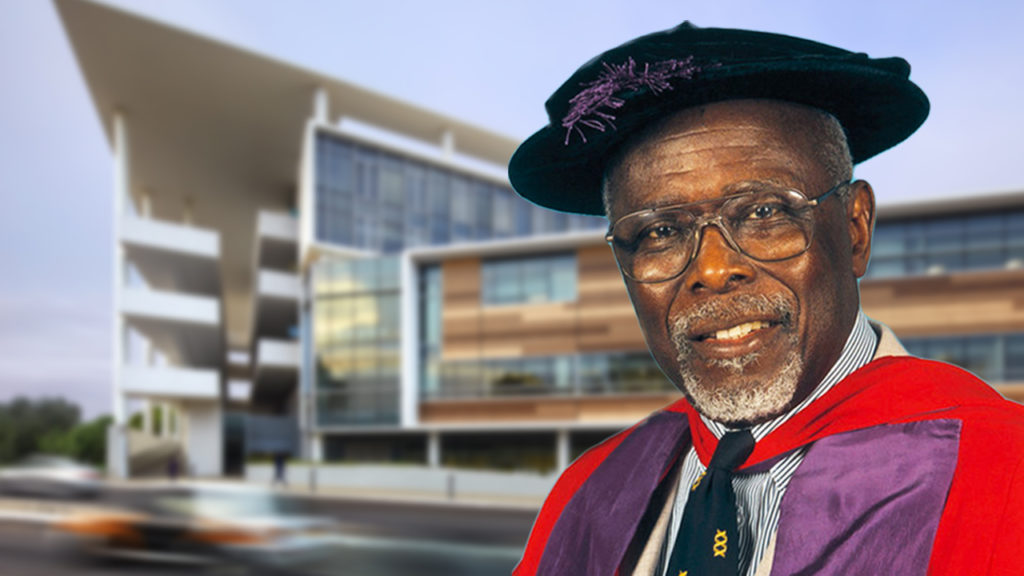
Dr. Felix Konotey-Ahulu
Dr. Felix Konotey-Ahulu is one of Ghana’s leading scientists and one of the world’s leading experts in sickle-cell anemia. He is one of the world’s foremost experts on the sickle-cell disease. Felix Konotey-Ahulu was born in Odumase-Krobo, Gold Coast, now Ghana. He attended the Basel/Presbyterian Mission Schools and at Achimota School took the Cambridge School Certificate (Grade I) and the London Matriculation (1st Division), afterward going to University College of the Gold Coast in 1951. He moved to London where he read Medicine at University College London and Westminster Hospital School of Medicine. He graduated with a Bachelor of Medicine, Bachelor of Surgery, and a membership of the Royal College of Surgeons in 1959.
He joined the Ghana Civil Service as a Medical Officer, with subsequent postings at the University of Ghana Medical School and the Ministry of Health at Korle Bu Teaching Hospital, where he directed the largest sickle-cell disease clinic in the world. Konotey-Ahulu researched Clinical Hemoglobinopathy. He was a Physician Specialist at Korle-Bu and Ridge Hospital, Accra, and Director of the former Ghana Institute of Clinical Genetics.
To present the African viewpoint in an International Symposium he titled his paper “The Human Genome Diversity Project: Cogitations of An African Native,” where he traced the sickle-cell gene in his ancestry, aided by the fact that the hereditary rheumatic syndrome was known to African ethic groups for centuries before it was first described in the USA in 1910. Dr. Konotey-Ahulu is the first person known to have traced hereditary disease in his forebears, generation by generation, with all names, right back to 1670 AD.
Between 1965 and 2005 he published more than 200 articles, letters, editorials, book reviews, and comments. He has been around Sub-Saharan African countries studying AIDS, and has published books on it.
His work in genetic genealogy helped him to show how genes from his ancestors, who practiced polygamy, led to different appearances of inherited traits. He also invented the Male Procreative Superiority Index, which provided new insights into African genetics. This index is a result of his personalized genetic research.
Professor Konotey-Ahulu has recently developed a method for writing African tonal languages: His book titled Mother Tongue aims to educate Africans to read their own language fluently and effortlessly.
Professor Konotey-Ahulu has received tons of awards, including the Dr. Martin Luther King Jr. Foundation Award for outstanding research in Sickle Cell Anaemia, the Guinness Award for Scientific Achievement in the Commonwealth, and the Gold Medal of the Ghana Academy of Arts and Sciences for outstanding contribution to knowledge in the Medical Sciences by a Ghanaian.
